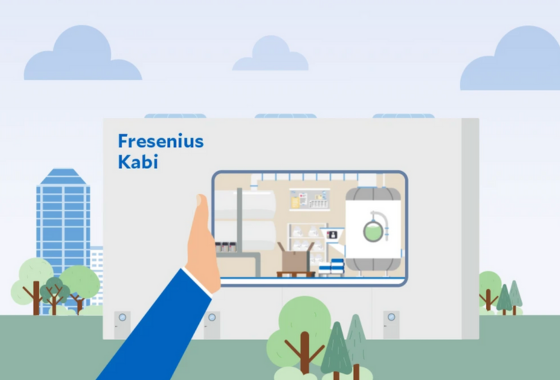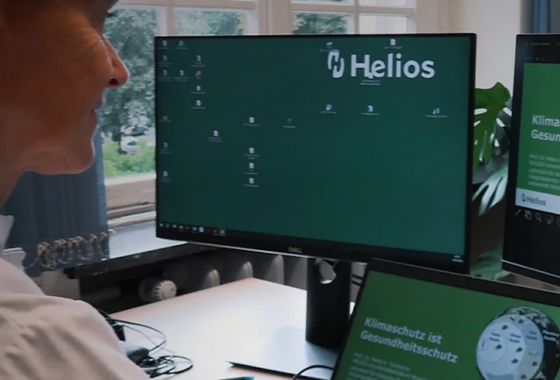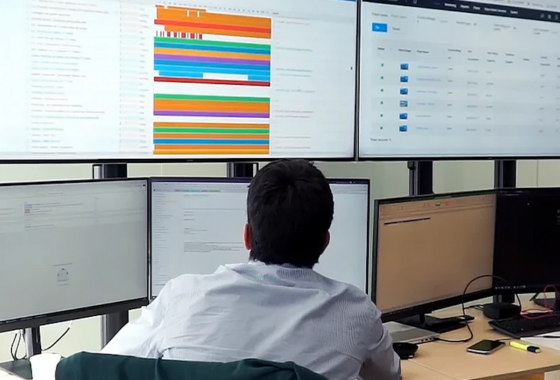Planet Dimension
Our commitment to a healthy planet
As a healthcare company, we operate in a special field of tension. On the one hand, we want to do our best to reduce potentially adverse environmental impacts to a minimum. On the other hand, we must never lose sight of the strict requirements that are placed on patients’ safety and hygiene. Our aim is to promote human health while further reducing our ecological footprint.
People need a healthy home – today and tomorrow. By reducing the environmental impact of our activities, we want to play our part in mitigating climate change and conserving natural resources.
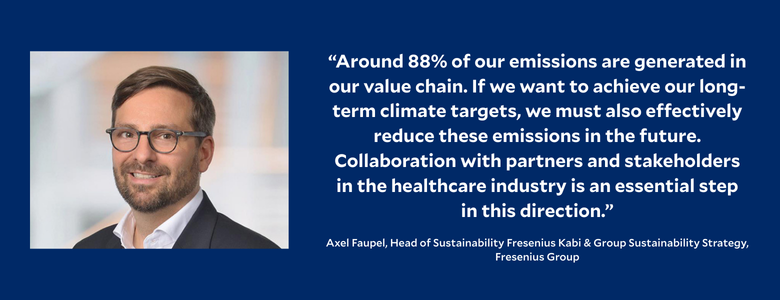
The Planet Dimension of our Sustainability Framework encompasses the following focus topics:
We have a clear goal: to decarbonize our operations and our value chain.
Fresenius manufactures medical products and operates healthcare facilities, which inevitably results in energy consumption and associated greenhouse gas emissions. In production, for example, the machines and containers have to be sterilized, and in our hospitals a wide variety of technical systems are in constant operation. This presents us with special challenges: On the one hand, we want to reduce our energy demand as far as possible and on the other hand, we must always guarantee the safety of patients in our facilities and ensure a stable supply of energy in our production.
We want to live up to our responsibilities and help achieve the goal of the Paris Climate Agreement: Our climate targets aim to limit global warming to 1.5 °C. All our climate protection activities contribute to our long-term objective of attaining net zero by 2050: This requires a company to reduce its avoidable greenhouse gas emissions, while unavoidable emissions must be offset by removing an equivalent amount from the atmosphere and storing it for the long term.
Within our own operations, we are committed to reducing our Scope 1 and Scope 2 emissions by 50% by 2030.
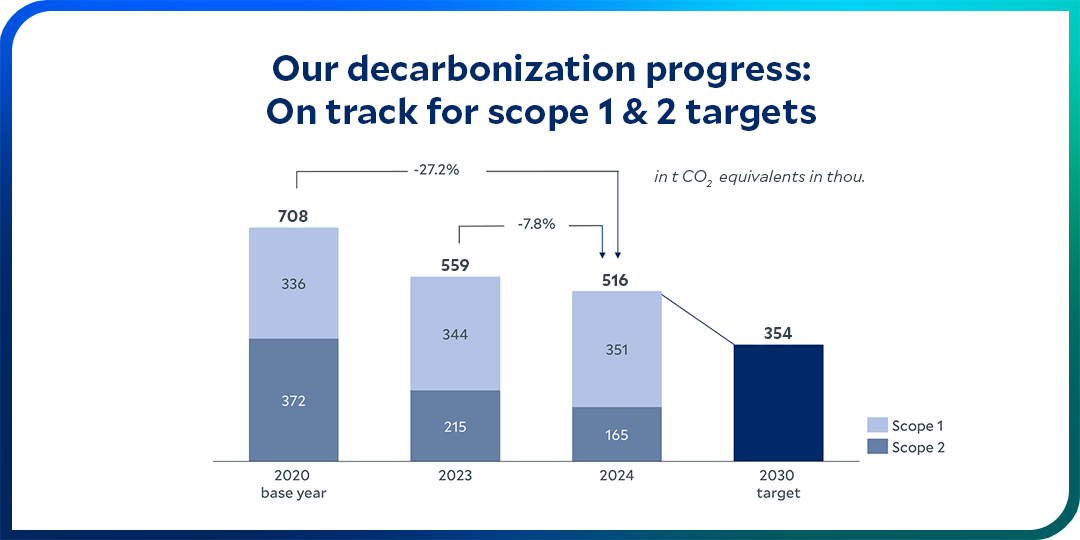
The decarbonization of our value chain is a decisive factor on our long-term path to net zero. Scope 3 emissions include greenhouse gases that are released indirectly in our upstream and downstream value chains – such as from purchased raw materials or at the end of the life of sold products.
Climate change is also a health issue. Rising temperatures, more frequent heatwaves and changing weather patterns directly affect people's health, particularly vulnerable groups such as the elderly, chronically ill, and children. Heat stress can lead to circulatory problems, dehydration and an increased risk of death. At the same time, climate change contributes to the spread of infectious diseases, for example by introducing new vectors such as mosquitoes or contaminating water sources. As a healthcare company, we therefore consider it our responsibility to not only react to the effects of climate change, but also actively contribute to mitigating it. After all, climate protection is health protection.
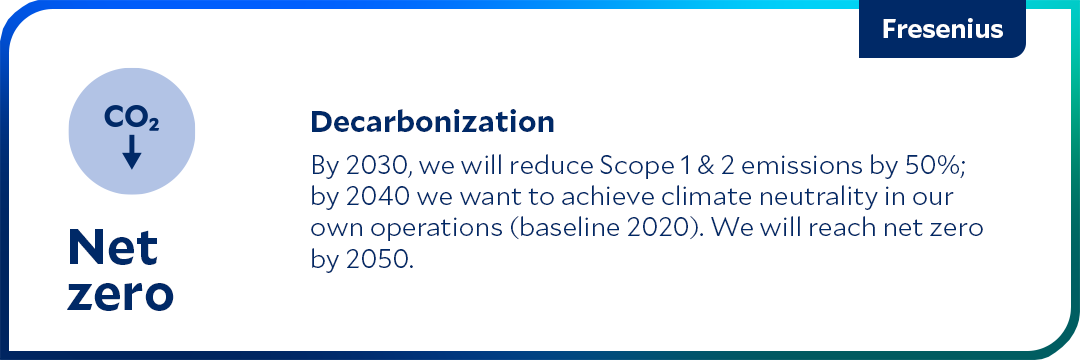
We place particular emphasis on preserving water quality. In water-stressed areas, we are especially committed to reducing our water withdrawal.
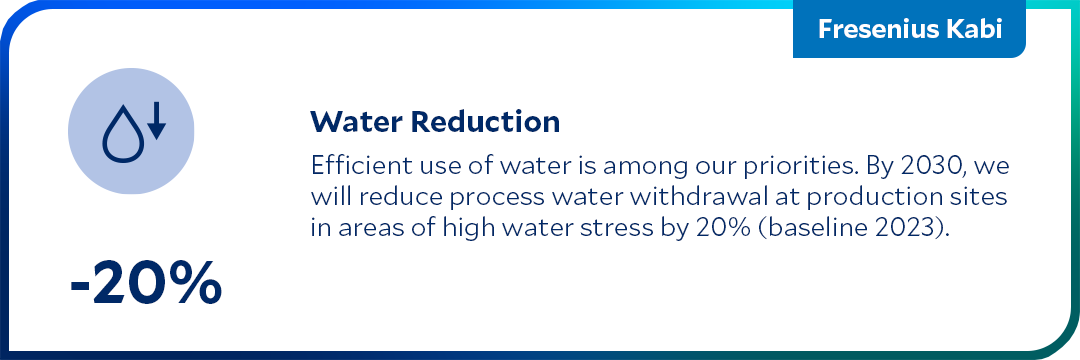
Water is one of our most valuable resources. As a healthcare company, we are dependent on water: We need drinking water of the highest quality to ensure safe patient care. It is crucial for hygiene and well-being. We also use water in the production of our pharmaceutical products – as process water as well as product component. The quality requirements for this water are even higher than those for drinking water.
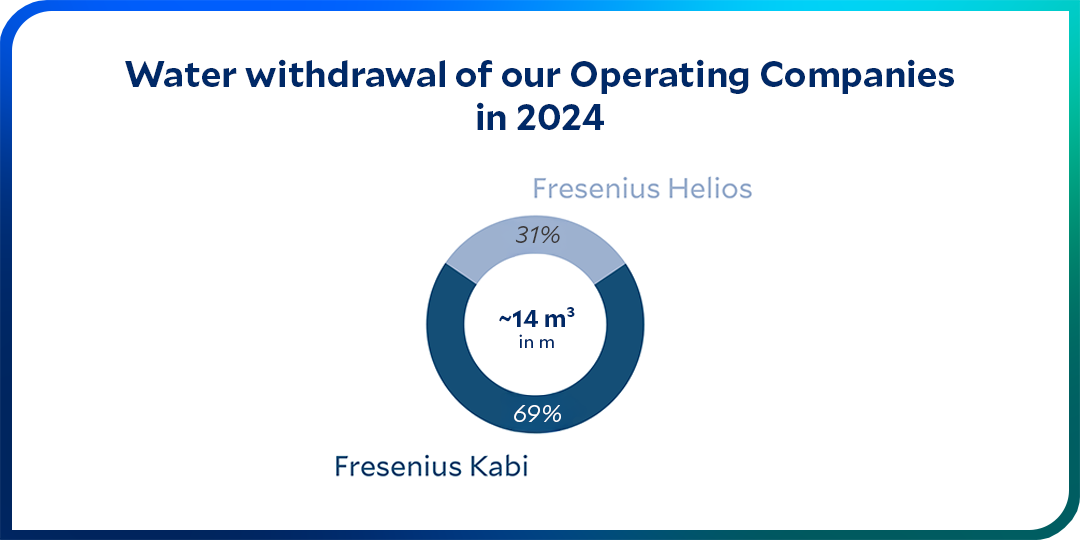
It is our ambition to avoid or minimize any negative impact on the environment that may arise from our direct business operations or from downstream activities. This also includes avoiding unnecessarily polluting the sources from which we obtain water or into which we discharge our wastewater.
At Fresenius, we focus on reducing our waste and embedding circular principles into product design and packaging solutions.
We are committed to conserving natural resources wherever possible. In doing so, we always have to strike a balance between resource efficiency and hygiene requirements. Disposable items are often used in clinics for hygienic reasons. Our options for saving resources are limited here. There are also strict regulations for pharmaceutical packaging. Our most important levers for conserving resources are therefore developing durable and resource-saving products, reusing resources wherever possible, and disposing of waste safely and systematically.

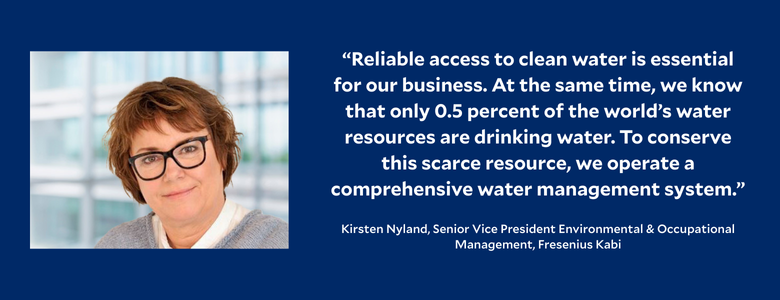
Sustainability Insights
Explore our stories to learn what sustainability looks like in our daily operations:


